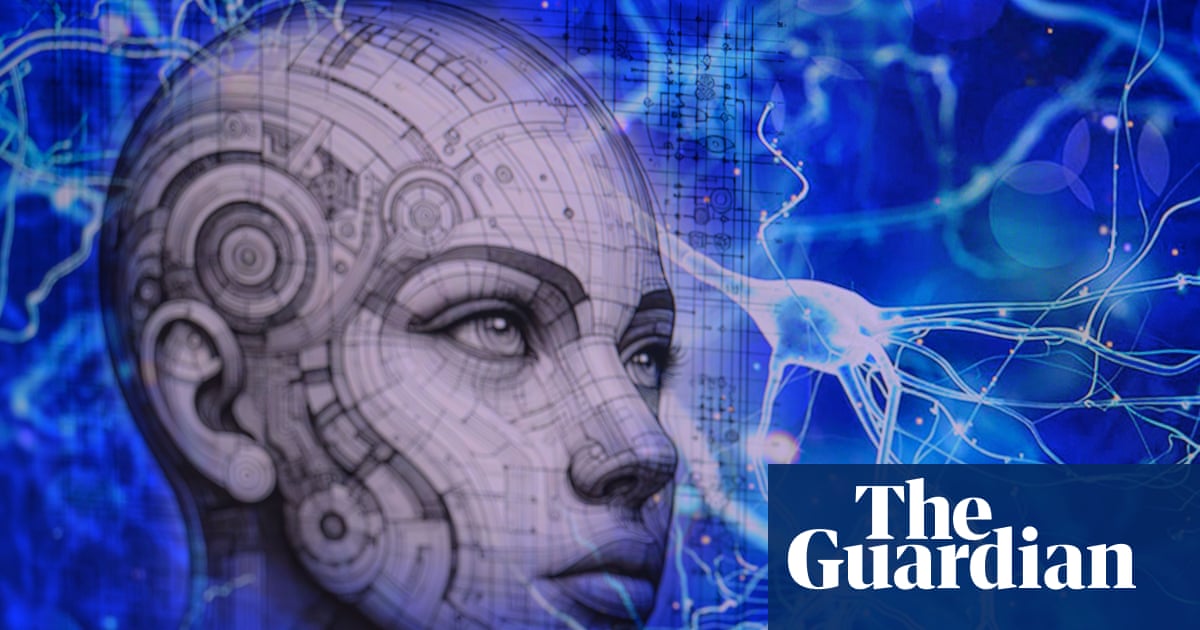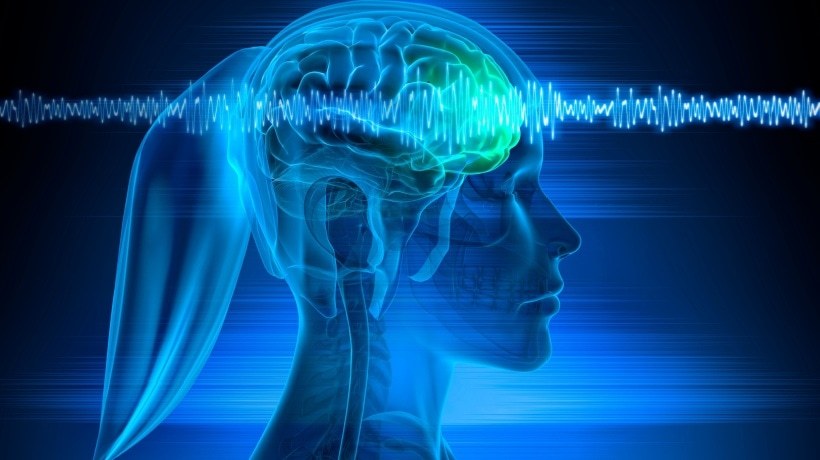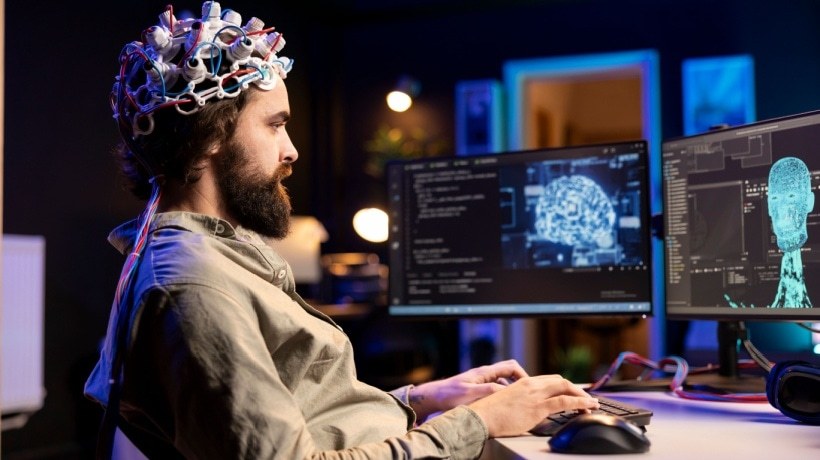#brain-computer-interfaces
#brain-computer-interfaces
[ follow ]
#neuralink #neurotechnology #artificial-intelligence #data-privacy #medical-technology #openai #merge-labs
fromWIRED
1 month agoFormer Neuralink Exec Launches Organ Preservation Effort
Alameda, California-based Science is aiming to improve on current perfusion systems that continuously circulate blood through vital organs when they can no longer function on their own. The technology is used to preserve organs for transplant and as a life-support measure for patients when the heart and lungs stop working, but it's clunky and costly. Science wants to make a smaller, more portable system that could provide long-term support.
Science
fromenglish.elpais.com
1 month agoMax Hodak: Patients go from being almost blind to being able to read every letter on an eye chart and do crossword puzzles'
The brain is the seat of your entire experience. It's the only organ that I really care about. The rest of the body exists to support the brain, move it around and facilitate its functions. This was quite clear to me from a very early age. And, with brain-computer interfaces, certain effects can be achieved that aren't possible in [the field of] medicine.
Medicine
fromWIRED
2 months agoParadromics Gets FDA Approval to Trial Its Brain Implant in People
Paradromics is one of several companies-which include Neuralink, Synchron, Precision Neuroscience, and Cognixion-working on technology to control computers and other devices using brain waves. Known as brain-computer interfaces, or BCIs, these systems capture brain signals associated with movement intention and translate them into commands. The Paradromics study is slated to begin early next year and include two individuals. After collecting data on the first two participants for a year, the company plans to ask the FDA to expand the study to include more volunteers.
Artificial intelligence
fromwww.theguardian.com
3 months agoThe Guardian view on electronic implants: a new way of seeing, not of being | Editorial
The retina and the optic nerve are outgrowths of neural tissue, and the remarkable success of electronic implants in restoring sight shows how far brain-computer interfaces have come. These have not delivered a sci-fi vision of augmented humans with incredible new powers but, perhaps more happily, significant progress has been made, restoring ability and agency to those who have suffered injury or disease.
Medicine
Wearables
fromInterconnected, a blog by Matt Webb
3 months agoCyborgs vs rooms, two visions for the future of computing
Two divergent futures for human-computer interaction: body-integrated cyborg wearables and enhancements, versus environment-centered, room-scale programmable interfaces that augment spaces rather than bodies.
fromTheregister
4 months agoAs Xi and Putin chase immortality, ponder digital dictators
See told me sufficient material exists to create AI-powered interactive versions of historical figures like Napoleon, and that researchers are already working on such reconstructions in the hope they will help bring history to life. I mentioned See's prediction to friends and family who all immediately condemned the idea because they fear activists would conduct digital exhumations of history's vilest characters - fascist dictators and the like - to insert their hateful ideologies into contemporary debate.
Artificial intelligence
fromwww.npr.org
5 months agoIn the brain, a lost limb is never really gone
A rare circulatory problem required Emily Wheldon to have her left arm amputated three years ago. Her brain still thinks it's there. "Most days, it just feels like I've got my arm next to me," she says. The perception is so compelling that Wheldon had to train herself not to rely on the missing limb. "When I first had the amputation," she says, "I was trying to put my arm out to stop myself from falling."
US news
fromwww.npr.org
5 months agoThese brain implants speak your mind even when you don't want to
But the idea that new technology can decode a person's inner voice is "unsettling," says Nita Farahany, a professor of law and philosophy at Duke University and author of the book: The Battle for Your Brain. "The more we push this research forward, the more transparent our brains become," Farahany says, adding that measures to protect people's mental privacy are lagging behind technology that decodes signals in the brain.
Science
fromwww.npr.org
5 months agoBrain implants that decode a person's inner voice may threaten privacy
Erin Kunz of Stanford University indicates that brain-computer interfaces (BCIs) can restore speech for paralyzed individuals by decoding signals from the brain's motor cortex, revealing intended speech.
Privacy professionals
Science
fromHackernoon
1 year agoHow Brain-Computer Interfaces (BCIs) and Neuromorphic Systems May Support Neuroplasticity in 2025 | HackerNoon
Brain-computer interfaces enable direct communication between the brain and devices, enhancing treatment for neurological conditions and exploring new learning potentials.
[ Load more ]









